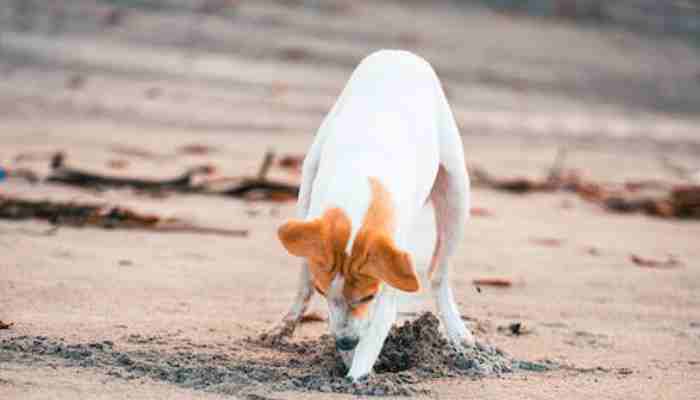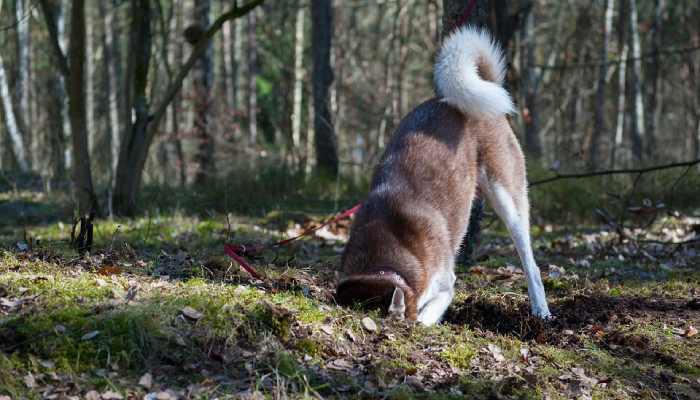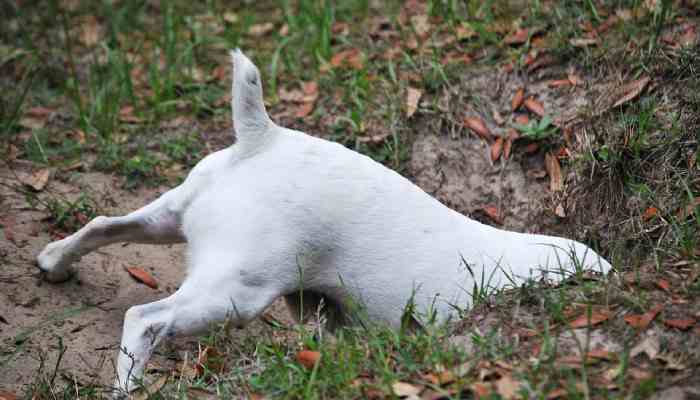Dogs have an ingrained habit of digging and it’s part o their natural behaviour. But why do they do it? Digging has been a great source of annoyance for many dog owners, but the psychology behind the behaviour can help us understand the reasons for it. By understanding why dogs dig, we can find ways to mediate the behaviour without discouraging our four-legged friends from engaging in this instinctual behaviour.
Digging is one of the most natural behaviours in a dog’s repertoire. It is seen in both wild and domestic dogs and can start as early as three weeks old! Dogs will instinctively dig to bury bones, or create a cool, shady spot during hot summer days to escape the heat. Other reasons include hunting, searching for food or attractive scents, and trying to preserve an item that they find interesting. Some breeds are particularly prone to dig due to genetics—terriers are notorious for their digging abilities due to their short legs and long front paws!
Although it can be frustrating at times, there are psychological factors at play when it comes to a dog’s digging habits. For starters, many breeds have an inherent desire to hunt and investigate; if you have ever seen your pup searching diligently through soil for grubs or some other morsel of food, then you may have noticed this tendency in action. Dogs also often dig as a way of expressing energy when feeling overstimulated or stressed out; this is usually triggered by environmental changes like someone entering the house or loud noises outside. Lastly, dogs may also engage in digging behaviour when looking for comfort or seeking shelter from other animals if they feel threatened by them.
Fortunately, there are ways we can limit excessive digging while still allowing our furry friends to enjoy this instinctive behaviour safely. One way is by identifying triggers; if we observe our pet digging in response to particular events such as noise or newfound scents outside then this might suggest a need for additional training such as going on regular walks during noisy times or introducing positive distractions when these situations arise (a simple treat could do the trick!). We should also consider providing alternate outlets for destructive energy—toys such as chews and Kongs that provide entertainment and mental stimulation help keep them occupied for extended periods of time without resorting to excessive digging activity. Lastly, if you find yourself with a particularly stubborn pooch who just won’t stop digging no matter what you do then providing designated “digging areas” with loose soil could help contain their urge while allowing them freedom of expression at the same time!
At its core, digging is an instinctive behaviour that satisfies a canine’s natural needs whether they’re looking to nestle into cosy places comfortable or simply express unsuppressed energy. Puppies especially will find immense joy in exploring different materials and objects – but with good management techniques we can prevent excessive destruction while still allowing our barking buddies occasional access to their primitive yet entertaining crafty pastimes!



